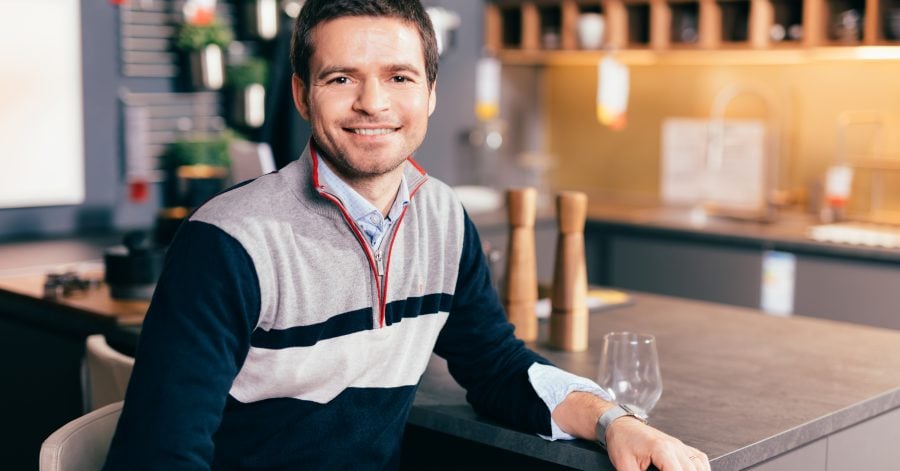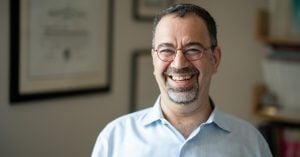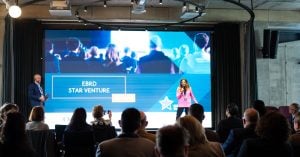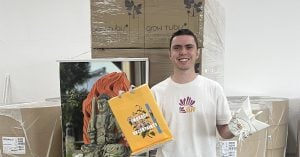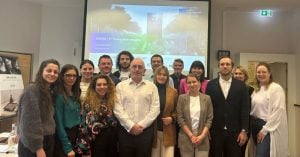In the corporate and political ecosystems, sustainability is more present on our collective and individual agendas than ever before, especially in the wake of COP26 – The 26th UN Climate Change Conference taking place in Glasgow. Across each and every industry and vertical, businesses are forced to confront the need to reassess the strategies and operations in light of their environmental and social footprints. At the upcoming GoTech World conference, the IT and digital business event celebrating 10 years in the CEE, the topic of sustainability is at the center of the stage.
This year, the 117+ sessions and 135+ headliners will tackle topics from the future of energy, urban logistics, and urban mobility, to growing digital businesses, and harnessing the power of emerging technologies. Among them, there’s Aldo Lele, Sustainability Manager SEE at IKEA, who will discuss the journey to climate positive retail. He is a seasoned sustainability project leader in both Western European and Southeast European markets. Given that IKEA has committed to become climate positive by 2030, The Recursive reached out to Aldo to discuss the key steps in a retail company’s journey to sustainability.
The Recursive: What motivates you to lead businesses into integrating positive environmental and social impact?
Aldo Lele: Waking up everyday to know that through my work I contribute to a better society and a cleaner environment is the best motivation I could have. Sustainability is a cornerstone of our business strategy. Growth is one of our objectives, but we cannot do it at any cost. That is why we have set clear ambition and investments for sustainable design and production, smart use of resources, circular business and social equality and development.
What can we learn from Western Europe and apply to our region? What are the material issues in SEE that we need to focus on?
Based on my experience so far, I see two key issues defining the gap between the Western and the SEE markets. First, the environmental protection legislation in SEE is less demanding and less clear than in the Western markets, meaning also less pressure on the different sector actors to comply with their obligations.
On the other hand, the general level of awareness in SEE on environmental problems is lower than the global average, which translates into a lack of action from the public to call on local authorities and the private sector to change for a better environment and more fair society.
In SEE, more actions need to be taken, such as investments in renewable energy to reduce greenhouse emission and air pollutants, an increase of recycling rates of generated waste, or investments in post-use water treatment.
What are the key trends in sustainable retail that could have the biggest impact in the SEE in the coming years?
I strongly believe that sustainable retail can only be achieved through developing a circular business. The circular economy is the only way to keep businesses, society, and the environment in a healthy balance. A practical measure that can be taken to achieve a sustainable and circular business is eco-design. This element is crucial as a starting process because it offers the product a long life-cycle from an early state, making it suitable for recycling and upcycling.
Moreover, we need to keep the material flow in a closed loop. This is one of the most important steps to reduce raw material consumption, and thus reduce the negative impact done through the extraction of virgin materials. We need to focus first on reducing, and then re-using. Recycling should become the second best practice as the recycling process has its own emissions than can and should be avoided when possible.
Another pillar to be taken into consideration is the shift to a fully renewable energy system. Promoting energy efficiency is also in our focus as a company, with 100% of the bulbs we sell being LED, while the number of IKEA stores powered 100% by renewable energy are growing every year. Soon we will phase out our single use batteries and increase our affordable rechargeable batteries offer. At the same time, INGKA group, the owner of most IKEA stores globally, invested €2.5bn over the last decade installing 935,000 solar panels on the roofs of its stores and warehouses. Complementarily, INGKA invested in 547 wind turbines and 10 solar parks, enabling us to produce today more renewable energy than we consume. .
At IKEA, one of your sustainability focus areas is becoming circular and climate positive. How do you plan to achieve these goals?
Global resource scarcity is already impacting the IKEA business, and the lives of people throughout the IKEA value chain. Our objective is to be people and planet positive, thus we develop responsible sourcing programs, we continue to improve resource utilization and dramatically reduce greenhouse gases in absolute terms, independent of how much we grow as a company.
For instance, we are focused on further enhancing our circularity by prolonging the life of products and materials and by using resources in a smarter way. We turn waste into resources, sending zero waste to landfill. We are taking the lead in transforming secondary materials (i.e. reused and recycled materials) into clean and safe resources. We are sourcing and producing renewable and recycled materials with a positive environmental impact. We are establishing and promoting systems and services to enable a circular economy.
For us, becoming climate positive means reducing more greenhouse gas emissions than the IKEA value chain emits, while embracing the growth of the company. This will be achieved without relying on carbon offsetting. We aim to halve the absolute net greenhouse emissions from the total IKEA value chain by 2030. This includes reducing the emissions across the IKEA value chain by at least 15%, and achieving the remaining part by removing CO2 from the atmosphere and storing it through better forest and agriculture management within the IKEA value chain.
We also want to be powered entirely by renewable energy throughout the whole IKEA value chain. By 2030, we want IKEA goods to be made using 100 percent renewable energy (electricity, heating, cooling, and other fuels), and by 2025, we want all Ingka Group buildings to be powered by 100% renewable electricity
Last but not least, let’s not forget the way we look at water, which is so precious and it is becoming scarcer in some parts of the world due to climate change. We are water positive by leading and developing water stewardship programs, contributing with regenerative projects to clean polluted waters and protect biodiversity and specifically focusing on leading projects to clean plastic pollutants from oceans.
With a large portion of your climate footprint coming from product use at home and its end-of-life, how do you plan to enable customers and waste management stakeholders to reach these goals together?
Looking for possibilities to increase circular consumption and minimize linear consumption will allow for more efficient use of resources, which will have an impact on profitability as well. As a result, we intend to transition away from reliance on finite resources and toward reliance on renewable and recyclable materials.
We began with some easy inquiries. What if shops bought back items from customers and then resold them to other customers at a lower price? This is how our “Buy Back” program was born. What if, instead of buying, buyers could rent furniture that could then be returned and leased again, as we are already doing in several markets? What if, in the future, home furnishing stores made the majority of their furniture from materials reclaimed from old furniture?
We also see a similar trend with our clients. Customers are becoming more conscious of the significance of acquiring items that allow them to live a more sustainable lifestyle at home. We observed this in our sales share from last financial year, when we sold items with a more positive ecological footprint worth more than 7.8 million Euros in Southeast Europe, which was more than we expected.
Igniting action and co-creation and advocating for a net zero carbon economy are also at the core of our ambitions because no company can lead change alone. Therefore, earlier this month, we hosted ONE HOME, ONE PLANET in Romania, a digital event which gathered problem solvers with the aim to identify and accelerate solutions to the challenges faced by society and IKEA business. We will also continue to work together with others across government, business, NGOs and citizen movements to raise our voice to influence for positive change.

